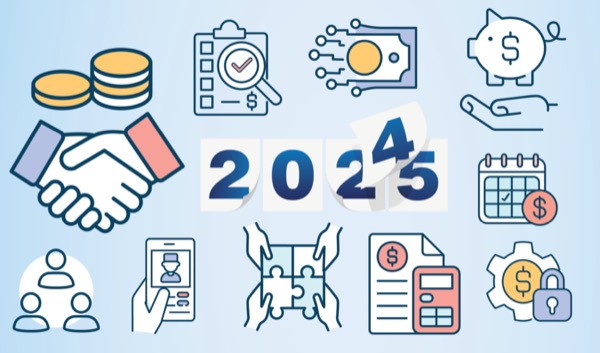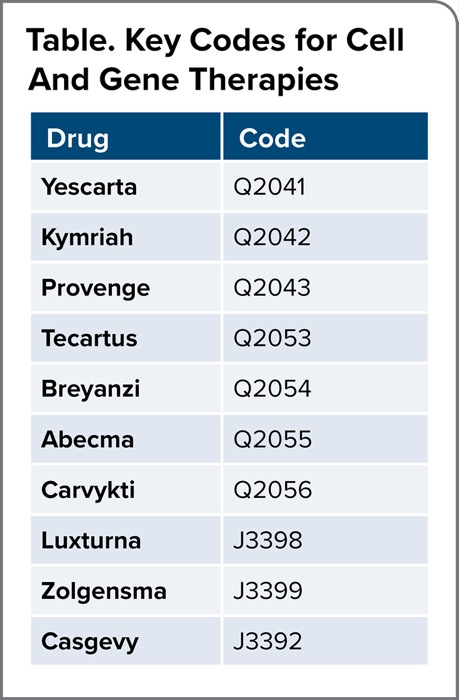
We’ve entered a new year and a new era with major proposed changes to healthcare. How sturdy are your three pillars of payment: 1) payor requirement rules and regulations; 2) health-system adherence; and 3) infrastructure? Are the teams responsible for each working cooperatively? More importantly, is pharmacy an integral part of these teams, or are you siloed away at the end of the food chain? The following examples illustrate important concepts applying to your department’s services and products.
Advanced Primary Care Management Services (APCM)
APCM is a new payment bundle reflecting the essential elements of advanced primary care. Applicable as of Jan. 1, 2025, the services combine elements of several existing care management and communication technology–based services you may have already been billing for your patients. This payment bundle reflects the essential elements of advanced primary care. One core area under this bundle is known as principal care management, which includes disease-specific services to help manage a patient’s care for a single, complex chronic condition that puts them at risk for hospitalization, physical or cognitive decline, or death. The bundle also includes transitional care management and chronic care management services.
According to the Centers for Medicare & Medicaid Services (CMS), APCM services allow you to:
- provide patients with a wide range of services to meet their individual needs based on the complexity of their disease;
- bill for these services using a monthly bundle (instead of billing for each individual service or recording minute by minute); and
- help simplify your billing and documentation requirements while ensuring that your patients have access to high-quality primary care services.
Whether you’re currently or will be involved in any of these services, use CMS’s APCM billing resource for definitions, responsibilities and billing codes (bit.ly/41AaWuy).
Federal Public Readiness and Emergency Preparedness (PREP): 12th Amendment
On Dec. 10, the Department of Health and Human Services amended the PREP Act for COVID-19, extending liability protections for certain pandemic countermeasures through Dec. 31, 2029. “Among other changes, the protections apply to all medical countermeasure activities provided through a federal agreement, as well as to pharmacists, pharmacy interns and pharmacy technicians who administer COVID-19 and seasonal flu vaccines and COVID-19 tests,” according to the American Hospital Association (bit.ly/4iwiTY1). “These protections apply regardless of a federal agreement or emergency declaration.” Is your team actively participating in all applicable patient care areas, including remote locations? Sometimes you’re the only accessible healthcare provider! For more information, see the Federal Register at bit.ly/41AnvRO.
Medicare Part D and Meds-to-Beds Program
It’s important to remember that Medicare Part D applies to your health system’s Meds-to-Beds program. Take the following critical steps to ensure optimal use:
- confirming the patient wants the meds-to-beds prescription;
- reconciling the discharge medications with those from admission;
- contacting patients’ regular pharmacy to close or discontinue the prescriptions no longer needed;
- identifying the payor to bill the plan; new cards will have the BIN, PCN and Group numbers that identify the payor;
- meeting any prior authorization requirements (prescription rejected in real time by the plan online; would have to meet those requirements before prescription could be filled); and
- remembering that if a prescription is a duplicate of an already filled prescription, the third-party payor would reject the meds-to-beds prescription.
Action step: Be sure that your inpatient health system team initiates the benefit investigation and pre-authorization for meds-to-beds prescriptions with likely coverage restrictions.
Biosimilars Strategy
What’s your road to using biosimilars: a racetrack or a meandering walk in the woods? This fastest-growing class of medications is the key to decreasing the cost of care to improve medication access, adherence and persistence. Maximal uptake depends on working collaboratively with patients and proactively identifying and resolving health-system and payor barriers. Make use of the wealth of resources available from the main pharmacy and hospital professional societies, as well as the FDA, all of whom champion the cause! (For American Pharmacists Association resources, see bit.ly/4iwtHFv; for ASHP, see bit.ly/4gh7SZ1.)
Non-Chemotherapy Complex Drug Administration
Medicare Administrative Contractors need assistance in determining proper payment for non-chemotherapy complex drug administration. CMS will add additional detail and complexity considerations for administration of non-chemotherapy complex drugs to its Medicare Claims Processing Manual. This also will include language consistent with the Current Procedural Terminology (CPT) code definitions for the complex non-chemotherapy infusion code series, stating that the administration of infusion for particular drugs and biologicals can be considered complex and may be appropriately reported using the chemotherapy administration CPT codes 96401 to 96549.
Remember that CPT codes 96401 to 96549 are the chemotherapy administration and non-chemotherapy injection and infusion codes, which also include clinical labor activities such as clinical staff preparation of chemotherapy agent(s) as well as evaluation and management services. Other services included in these codes are:
- use of local anesthesia;
- starting the IV;
- access to the IV, catheter or port;
- routine tubing, syringe and supplies;
- preparation of drug;
- flushing at completion; and
- hydration fluid.
Action step: Drug administration fees are an additional source of revenue, so it is important to work with your revenue cycle team to ensure that coding is correct, both for the products being administered as well as the administration fee designation. Note that site of care determines payment rates; they differ in the Outpatient Prospective Payment System versus Physician Fee Schedule rules.
Cell and Gene Therapies
CMS generally treats items and services reported on a Comprehensive Ambulatory Payment Classification (C-APC) claim as packaged into payment for the primary service. But this policy only kicks in when the non-primary items or services are integral, ancillary, supportive, dependent, and adjunctive to the primary service and part of a comprehensive service. Here’s another wrinkle: CMS finalized an exclusion for certain gene and cell therapies that would exclude them from being packaged into a C-APC service. CMS believes these cell and gene therapies are primary treatments and not “integral, ancillary, supportive, dependent, or adjunctive to any primary C-APC services” and thus should not be packaged with the C-APC. The Inpatient Prospective Payment System Final Rule finalized the list of cell and gene therapies excluded from packaging for calendar year (CY) 2025 (Table).
| Table. Key Codes for Cell And Gene Therapies | |
| Drug | Code |
|---|---|
| Yescarta | Q2041 |
| Kymriah | Q2042 |
| Provenge | Q2043 |
| Tecartus | Q2053 |
| Breyanzi | Q2054 |
| Abecma | Q2055 |
| Carvykti | Q2056 |
| Luxturna | J3398 |
| Zolgensma | J3399 |
| Casgevy | J3392 |
IRA in 2025 and Beyond
Section 11101 of the Inflation Reduction Act, P.L. 117-169, added a new section 1847A(i) to the Social Security Act establishing a requirement for manufacturers to pay Medicare Part B rebates for certain single-source drugs and biological products with prices that increase faster than the rate of inflation for a calendar quarter. Details and continuing amendments can be found at bit.ly/3ZvS79m. Here are a few important areas to heed:
340B covered entities: All 340B covered entities, including hospital-based and non–hospital-based entities, submitting claims for separately payable Medicare Part B drugs and biologicals have to discontinue using modifier “JG” on claim lines for drugs acquired through the 340B Drug Pricing Program as of Dec. 31, 2024. As of Jan. 1, 2025, 340B covered entities must report the “TB” modifier on claims.
Single-source drugs: IRA 2022 established a Part B inflation rebate by manufacturers for certain single- source drugs and biologicals with prices increasing faster than the rate of inflation. The “JG” or “TB” modifiers allowed CMS to identify units of drugs acquired through the 340B program to effectively implement the Part B inflation rebate program because these units of 340B drugs are excluded from the Part B inflation rebates. For an overview, see the Federal Register notice at bit.ly/4ff7oBe. Implications to the CY 2025 Physician Fee Schedule final rule for information on the Part B inflation rebates details can be found at bit.ly/3ZSXYXJ.
Prevention Versus Correction
Which is better: preventing denials or just correcting them? A recent Healthcare Financial Management Association survey revealed that 60% of denials can be attributed to front-end issues and that almost half of resources are allocated to trying to overturn denials rather than preventing them (bit.ly/41vzogO). Many denials are due to missing and/or invalid coding and billing requirements. (The survey also details a useful step-by-step approach to resolving denied claims.)
A final thought: As longtime readers of my column know, it’s all about revenue. Are you contributing to low-quality data? Taking charge of revenue cycle management to change this is my challenge to you for 2025.
This article is from the January 2025 print issue.



